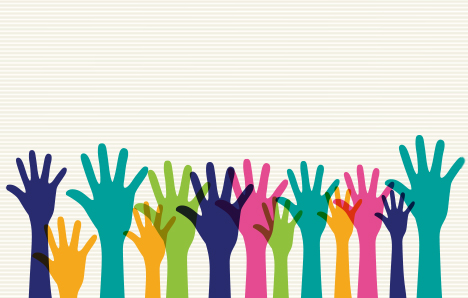Restorative Advocacy and New Narratives for Democracy Day 2020
by Julia Roig September 15, 2020

On September 15, we recognize International Democracy Day. And on this day in 2020, we are justifiably worried about the decline of democracy around the world. Democracy-building as a field is not needed only in newer democracies, but rather is clearly a shared challenge globally as we confront intensifying polarization, the proliferation of misinformation, rising autocratic tendencies in many political leaders, and growing mistrust in government institutions. To confront these myriad challenges, democracy-promoters, human rights defenders and social justice advocates are called to come together in new ways, but we must also reflect on new tools and skills to respond to this moment.
- Time for Restorative Advocacy: This is a practice that PartnersGlobal is championing in recognition of our increasingly polarized environments. We observe the effects of many current advocacy efforts that exacerbate divisions and are keeping us from coming together to find solutions to our most pressing problems. Our current definition of Restorative Advocacy is “working for social change in a manner that is self-reflective of our own cognitive biases, intentionally inclusive of different perspectives; advocacy approaches that adhere to principles of non-violence, social justice and human rights with a long-term view of restoring broken, polarized societal relationships; seeking change that maintains the basis for a democratic, pluralistic society.” Partners is convening new alliances with academics who study polarization, together with educators, movement leaders and non-profit networks to refine this concept together and expand Restorative Advocacy in practice.
- Building Narrative Competency: PartnersGlobal also works with human rights defenders and leaders of social movements to fully embrace narrative competency as a key tool in their toolbox for social change. This includes an understanding of narrative engagement not only for strategic communications and campaigning, but as an entry point for all human relationships and understanding to build more inclusive and diverse coalitions and public support. Narrative competency includes a personal commitment to self-examination, willingness to be open to collaborate with unlikely bedfellows, and an intellectual curiosity to understand and incorporate different world views when common goals are identified. (See our Engaging with Narratives for Peace Guide.) This core competency internalizes the fact that all humans are multi-dimensional and have several -sometimes divergent or competing – narratives that drive our sense-making of the world. This is a long-term endeavor to build this competency – challenging ourselves to think, work and relate to each other in new ways that will impact our communications and those we are in relationship with, ultimately resulting in better outcomes for democratic change.
- Uncovering a New Shared Story: The current field of “democracy defenders” is insular and in need of branching out to different actors and sectors to achieve relevancy for a broader audience. We need to be able to speak plainly about our values and work, in a way that will resonate beyond our own community and professional fields, and that has legitimacy with a wider public constituency. Terms like “social justice” “civic space” and even “human rights” need to be re-examined, and boiled down to their essential essence to then be applied to specific issues that people care about – like climate change, health care, economic equality, racial justice, women’s rights, etc. We need to uncover a new “core story” of social change that incorporates a rights-based approach yet can unite different movements around a shared future. This new story should not distinguish between a global south and global north – we have shared challenges, with different contexts and yet with many talents and perspectives to contribute to the change we seek to bring about in the world. PartnersGlobal is partnering broadly with creatives, marketers and the artistic community to help uncover this “reframing” for social change. It is an audacious goal, and yet one that is recognizable to many as necessary for new movements to emerge on a global scale that are impactful locally and break out of our linear political divides.
Finally, for democracy promoters to achieve all this during such trying times, we must be mindful of the resiliency of the civil society sector to not only survive during the tumult, but to thrive. PartnersGlobal Resiliency+ Framework offers civil society a roadmap for tackling their own resiliency through peer mentoring and coaching to reflect on these needed adaptations. By working together with the Partners Network (and beyond) on our resiliency journeys, we acknowledge and celebrate the many ways our colleagues inspire us to continue to strive for democratic ideals on Democracy Day and every other day.
